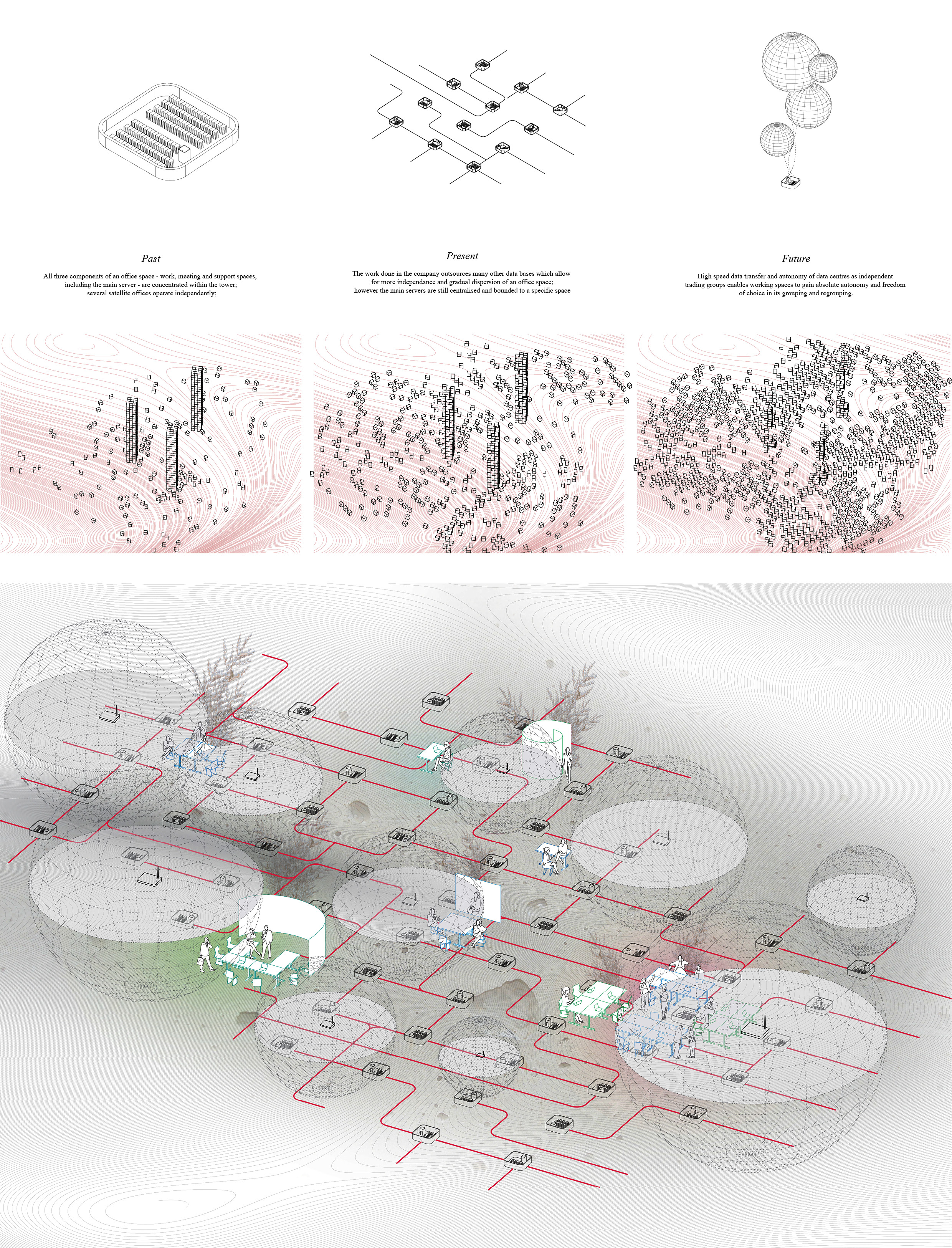Pronunciation: /ˈtɪkɪˌtaki : of an uninspired or monotonous sameness
Think Space Money: Environment competition 2014
with Ana Filipovic
selected entry

...And the people in the houses
All went to the university,
Where they were put in boxes
And they came out all the same,
And there’s doctors and lawyers,
And business executives,
And they’re all made out of ticky tacky
And they all look just the same.
Marina Reynolds, Little boxes, 1960.
Ticky tacky foresees programatic subtraction of office towers and restructuring of the working processes made possible by developing mobile, wireless technologies. Ticky tacky is a critique of social and economic factors that shaped the capitalist city, thus pursuing the creation of new enviroments where the company ceases to be the principal community of the worker, alowing less homogenious scenarios to occure. Changing the spatial setting is considered an accelerator towards social and economical transformation.
Capitalism has marked the last century as a dominant economical system, overruling all others. Money and power driven, it has its spatial embodiment in an efficient, standardized office space, and with the office tower as its ultimate spatial icon.
Office tower consists of : work spaces varying from cubicle, individual office, team space, open office and touchdown ; meeting rooms such as meeting point, meeting room, and conference; support spaces (archive, storage, print and copy, mail, pantry). These spaces have been grouped for the past century to enhance communication and collaboration, but also hierarchy and control.
By-products of such spatial organization became sameness, monotony, repetition, lack of personalization, isolation and alienation, strict colourless dressing codes, claustrophobia and depresssion.

These spatial organization reflects the overall dynamics of the metropolis, causing congestion, and therefore traffic intensification and pollution. The automation of office activities, the shift to home offices, off-shoring, and the uncoupling of office work from office space by means of mobile, wireless equipment will tremendously reduce the need for the space of classical office complexes.1
Most of the office work done these days would not be possible without the server. Same goes for mobile technologies. Subtracting the infrastructure could provide new grounds for working spaces.
As the work extends into our private sphere via smartphones, our personal life does not affect the working enviroment. In the times when new labour agreement in France bans employers to communicate work related topis with the employees after working hours through mobile technologies, subtracting the sameness could bring back heterogenity to our everyday lives.
Over the course of the past 20 years, the Internet significally changed the sphere of our private life and personal relations, yet the working space remained the same. Development of mobile technologies has made it possible to transfer the need for proximity into virtual space. Could it be possible to bring back proximity and variety into the spaces of office workers? Ticky tacky proposes a network of independant support spaces that are scattered around the city and beyond, enabling the worker to personalize his working space, choose the physcial distance from his family and friends, move work with him and never again take the long ride to work.
1 “Hypotheses on urban shrinking in the 21st century” by Philipp Oswalt (http://www.shrinkingcities.com/hypothesen.0.html)
︎